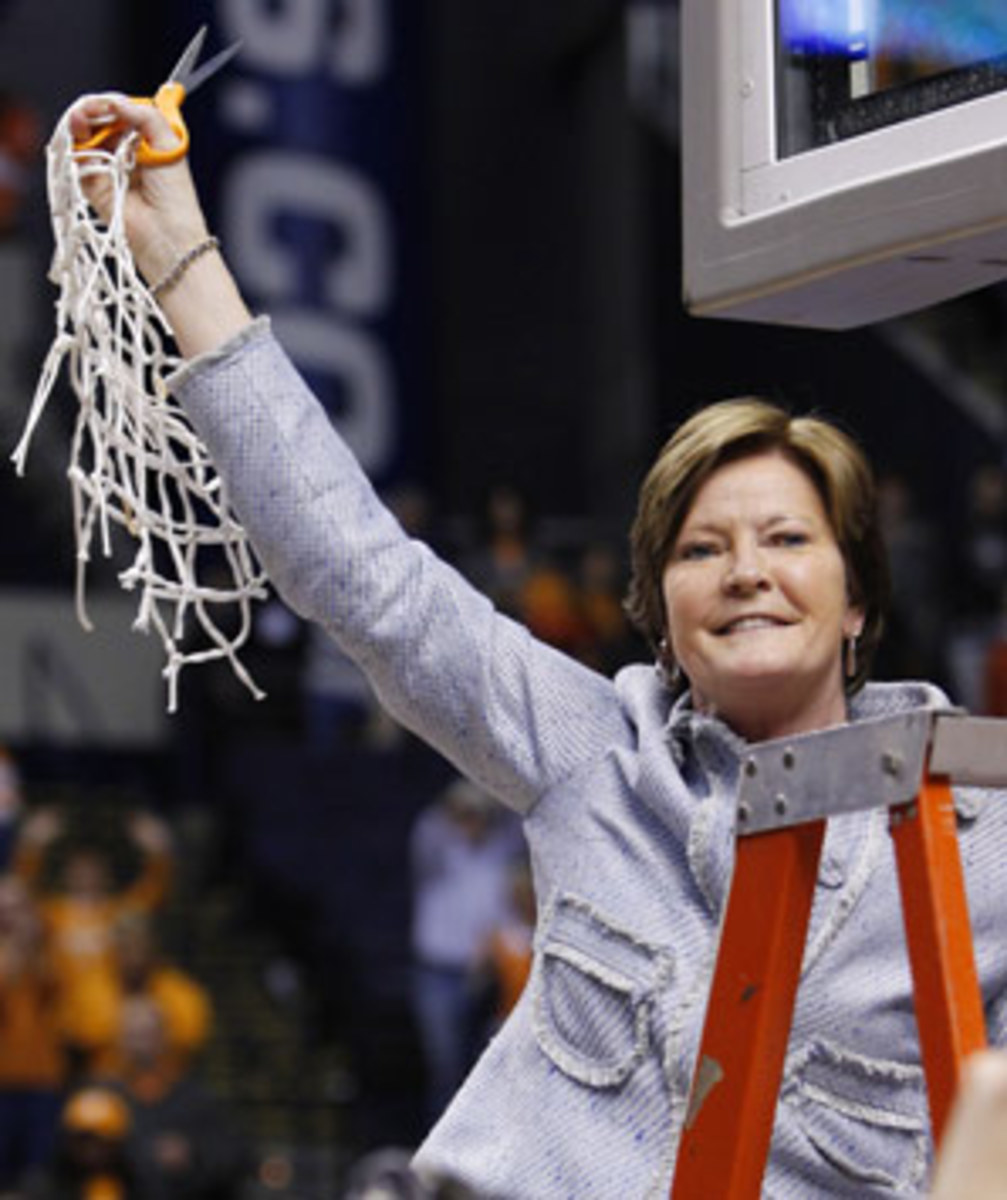Pat Summitt will fight, blaze new trail; don't bet against her
Here's the problem with disease.
"It doesn't discriminate," Stanford coach Tara VanDerveer said on Tuesday.
No. Because if it did, dementia would not have picked Pat Summitt. It would have taken one look at those steely blue eyes, at that winning record, at the intimidating on-court demeanor and backed right off. Just gone on to pick on someone else.
But that's not the way it works. Instead we end up with Tuesday's shocking news that Summitt has been diagnosed with early-onset dementia. She had to tell her bosses and players. Her close friends in the basketball community like VanDerveer were informed. And they were reeling.
"I'm shocked about it," VanDerveer said. "Here's someone very healthy. An Olympic athlete."
An Olympic athlete. An Olympic coach. A transcendent figure in women's sports.
But everyone who knows Summitt -- from her players to her fans to her friends -- expects her to put up a fight. Because that's what Summitt does: she fights back and doesn't back down.
"Whatever can be done, she'll do it," VanDerveer said. "She's a strong person. A good person."
When you think of Summitt, you think of strength. Of determination. Of trailblazing. I always swore that if Summitt ran for office she could easily be elected the first woman president. She inspires that kind of authoritative blend of inspiration and intimidation.
Now when we think of Summitt we'll also think of dementia. Of a progressively debilitating disease. Because disease doesn't discriminate. Summitt's grandmother had the disease as well. So when the news came, when she went to the Mayo Clinic after her 37th season at Tennessee to find out why she wasn't feeling right, there was a connection.
"There's not going to be any pity party and I'll make sure of that," she told The KnoxvilleNews Sentinel.
She will, too. If she gets a sense of a pity party, she may make everyone run suicides. Kind of like she did the day after her team was eliminated in the first round of the NCAA tournament in 2009. Because that's the way Summitt approaches things. It sounds like that's the way she's approaching this fight: with a plan, with resolve, without quit.
Summitt is not planning on retiring. She said that doctors have encouraged her to keep coaching. Summitt has the full support of the Tennessee administration.
As she should. At a school where men's football and basketball has suffered turmoil, Summitt remains a bastion of excellence and integrity. She is one of the most beloved figures in all of college sports.
She's the alltime winningest coach in Division I basketball. She's a historic figure. But it's way too early to talk about Summitt's legacy. Legacies are about the past, about what's already happened.
Summitt is focusing on the present, the future. She's going to tackle something that has never been done before: coach a Division I high-level program while publicly dealing with dementia.
She's blazing another trail. And, once again, she'll probably change some attitudes and some assumptions along the way.






